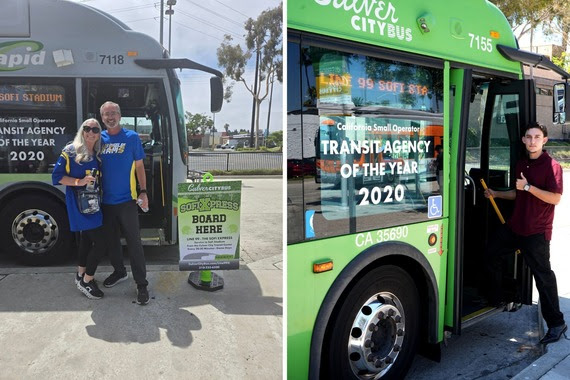Metro will begin 22 consecutive weekend closures along stretches of Wilshire Boulevard in the Miracle Mile area tomorrow night to accommodate construction of a subway station at Wilshire and La Brea Avenue.
The agency announced in February that it had scrapped a plan that would have shut down a portion of Wilshire for seven weeks, and instead opted for the weekend closures.
During the 22 weekends, a Metro contractor will excavate a stretch of Wilshire and replace it with concrete decking. The weekend work will be suspended during the Fourth of July and Labor Day weekends.
The affected stretches of Wilshire will be closed beginning at 8 p.m. on Fridays through 6 a.m. Mondays. The first phase, beginning Friday night, will involve three weekend closures from Detroit Street to La Brea. Prior to the closure, Wilshire will be reduced to one lane in each direction from 10 a.m. to 8 p.m. Friday.
Metro officials recommended that westbound motorists take La Brea north to Sixth Street, then head west to Fairfax Avenue and south back to Wilshire. Eastbound motorists can take the same route in reverse.
The second phase of the construction project will involve three weekend closures at the La Brea intersection. The third — and biggest — phase will be 16 weekend closures of Wilshire from La Brea to Highland Avenue.
Metro officials said access will be maintained for local businesses and residents.
The work is part of the $6.3 billion extension of the Metro Purple Line, which ends at Wilshire and Western Avenue. The extension will stretch the line west to Wilshire and La Cienega, with the project expected to be open by 2023. The line will then been stretched to the West Los Angeles VA hospital by 2035, although the timeline could be advanced as Metro explores additional funding.
“Metro continues to transform transportation in L.A. County, and we’re now ready to begin building the first of three subway stations that will provide more Angelenos with fast, frequent, high-capacity transit services along Wilshire Boulevard — one of our region’s most congested corridors,” said county Supervisor Mark Ridley-Thomas, the chairman of the Metro board. “We have planned this operation to be as least invasive as possible, and we ask for the public’s patience as we continue building a world-class transportation system for our country.”





















